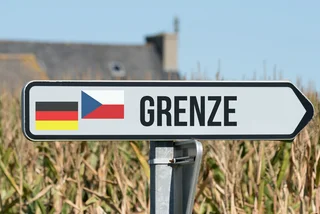The German Ministry of the Interior has declined a proposal to implement permanent police controls on the borders shared with Czechia and Poland amid an influx of illegal migrants. This decision comes in response to appeals from the authorities in the federal state of Saxony, which requested enhanced checks due to higher inflows of illegal immigrants arriving via Czechia and Poland.
Stemming illegal immigration
The Görlitz district council, situated in the border region (known as Zhořelec in Czech), had urged the federal government to establish continuous police checks in order to manage the influx of migrants entering Saxony from the neighboring Czech Republic and Poland. Saxon Prime Minister Michael Kretschmer made the same request.
PARTNER ARTICLE
The German police said that approximately 10,000 illegal asylum seekers entered Saxony during the first half of 2023 and that the migration flow has further intensified in recent weeks. The migrants primarily originate from Syria, Afghanistan, and Turkey, using the well-known Balkan migration route, and increasingly from Belarus as well.
No plans to introduce the checks
Addressing the matter, a spokesperson for the Federal Ministry of the Interior confirmed to the Sächsische Zeitung newspaper that the reintroduction of permanent internal border controls within the Schengen Area is currently not under consideration. The spokesperson also clarified that individuals caught attempting to seek asylum directly at the borders cannot be immediately returned to the Czech Republic or Poland. Instead, they must undergo the established asylum procedure in German facilities.
The Schengen Area Code permits the temporary introduction of internal border controls, but only for specific occasions and within a limited timeframe. Notably, such controls were last implemented in Saxony in 2021 in response to the Covid-19 pandemic and in 2017 during the G20 summit held in Hamburg. Similarly, Czechia also introduced temporary border controls with Slovakia from September 2022 until February 2023.
Alfred Klaner, a spokesperson for the federal police stationed in Ebersbach along the Czech border, highlighted that their focus remains on combating smuggling activities. He indicated that there is active cooperation with law enforcement colleagues in the Czech Republic and Poland.
Earlier this year, Czech Interior Minister Vít Rakušan said that he did not expect the introduction of any Czech-German border controls and added that Czechia had no plans to implement them.












 Reading time: 2 minutes
Reading time: 2 minutes 




























